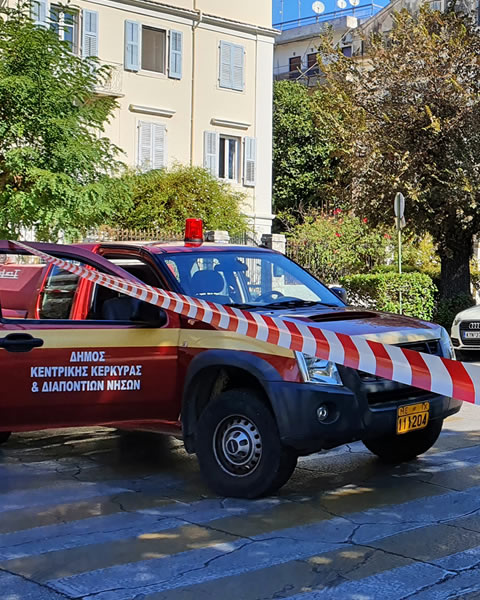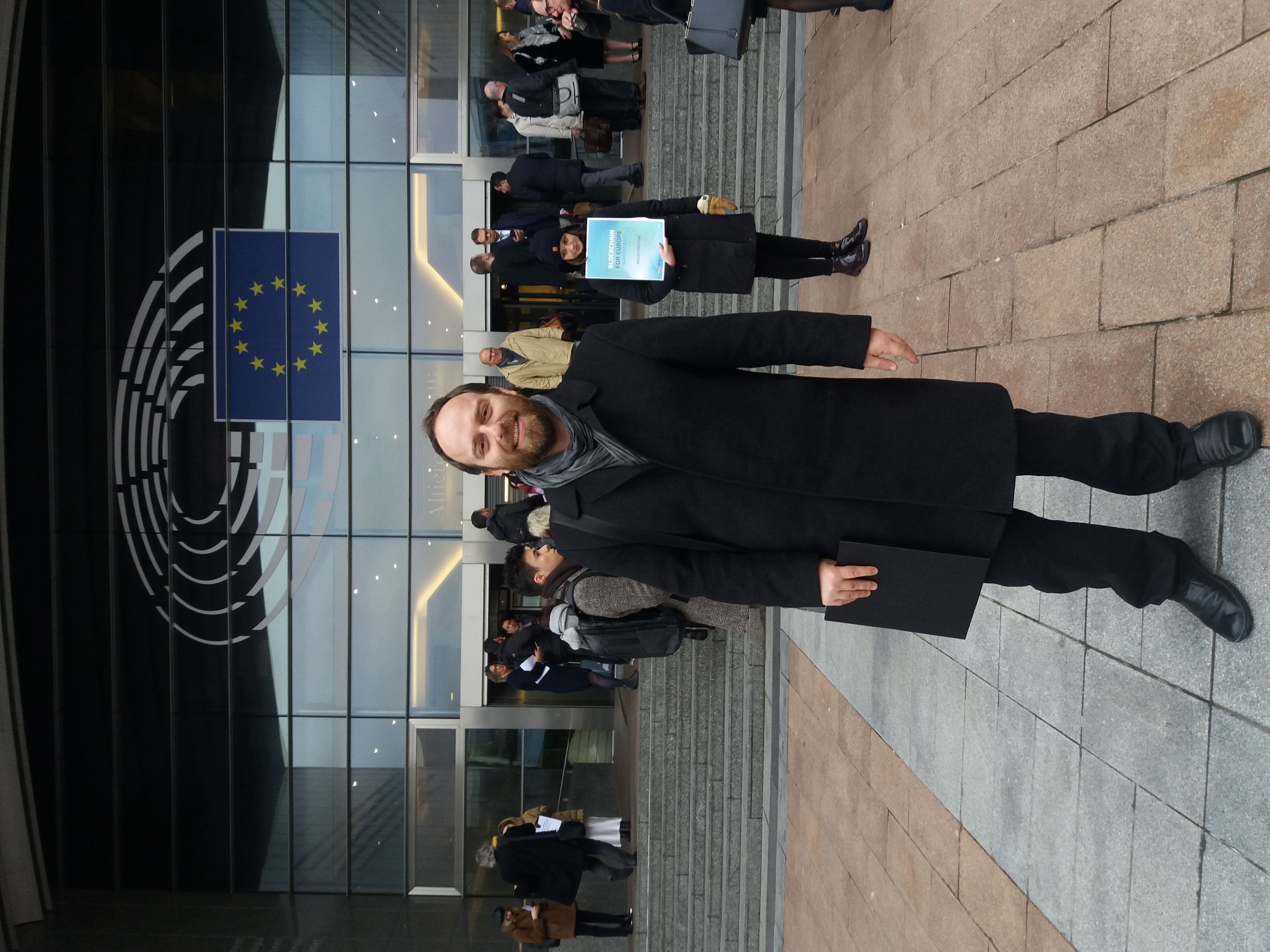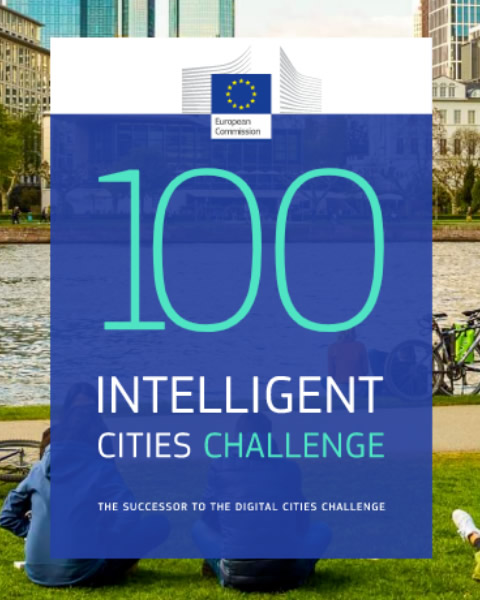ICC
What is ICC
What is ICC
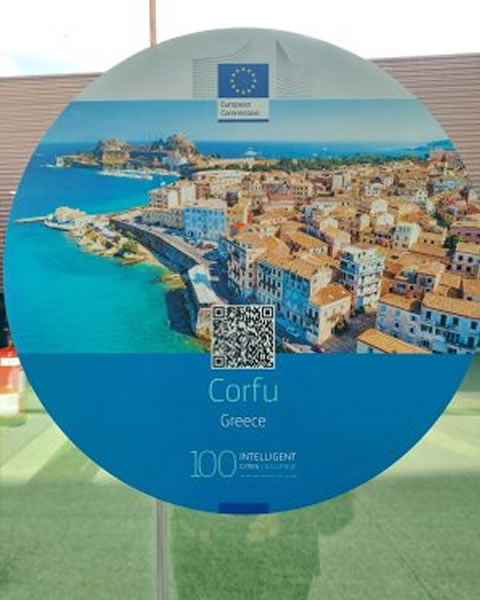
ICC 1.0 is a programme from the European Commission, which was based on the success of a previous European programme that took place during the period 2017 – 2019, with the characteristic name "Digital Cities Challenge" (DCC).
It started on 28 September 2020 and ended at the beginning of 2023. It was part of the extended support offered by the European Union (EU) aiming at the implementation of the "European Green Deal" and the smooth transition of European cities into the Digital Era.
The cities of the E.U. who were selected to participate in ICC 1.0 received (as much as the COVID-19 pandemic eventually allowed):
a) serious mentoring with on-site visits and high-quality guidance, specialized in the needs of each city individually,
b) high level events,
c) networking actions and
d) general support from the European Commission itself, which offered help to implement large-scale changes and substantive work on energy, mobility, waste management, digital transformation, security, and other local priorities per city and helped them more generally to develop their strategy to become "smart" and sustainable European cities of the 21st century.
It started on 28 September 2020 and ended at the beginning of 2023. It was part of the extended support offered by the European Union (EU) aiming at the implementation of the "European Green Deal" and the smooth transition of European cities into the Digital Era.
The cities of the E.U. who were selected to participate in ICC 1.0 received (as much as the COVID-19 pandemic eventually allowed):
a) serious mentoring with on-site visits and high-quality guidance, specialized in the needs of each city individually,
b) high level events,
c) networking actions and
d) general support from the European Commission itself, which offered help to implement large-scale changes and substantive work on energy, mobility, waste management, digital transformation, security, and other local priorities per city and helped them more generally to develop their strategy to become "smart" and sustainable European cities of the 21st century.
This particular effort was an excellent opportunity for the city of Corfu to transform itself faster and in the most proper way, into a greener, more social, and "smarter' city, offering its fellow citizens new opportunities and improving their quality of life, relying exclusively on the corresponding European Directives.
This specific programme required from its beginning, immediate small changes - "quick wins" but also measurable results upon its completion from all the participating cities, with the aim of effectively addressing the most important challenges faced by each of them. For the Municipality of Central Corfu and Diapontia Islands, the specific axes, according to the participation application submitted, were, in order of priority:
• Waste management and circular economy
• eGovernment and digitising public services
• Smart and green mobility and transport
• Scaling up renewable energy solutions and energy-efficiency
This specific programme required from its beginning, immediate small changes - "quick wins" but also measurable results upon its completion from all the participating cities, with the aim of effectively addressing the most important challenges faced by each of them. For the Municipality of Central Corfu and Diapontia Islands, the specific axes, according to the participation application submitted, were, in order of priority:
• Waste management and circular economy
• eGovernment and digitising public services
• Smart and green mobility and transport
• Scaling up renewable energy solutions and energy-efficiency
What ICC offered
What ICC offered
The "Intelligent Cities Challenge – ICC 1.0" programme offered to the 136 cities that were finally selected (as much as the COVID-19 pandemic eventually allowed):
• Community conventions – for action over talk
• Regular gatherings – meetings of the intelligent ecosystem of the EU to compare the performance that the 136 selected cities in the resulting network would achieve.
• Discussions and advice from world-class speakers (mentoring),
• Publicity and celebration of each city's success.
• Commitment to joint action and comparison of results.
• Community conventions – for action over talk
• Regular gatherings – meetings of the intelligent ecosystem of the EU to compare the performance that the 136 selected cities in the resulting network would achieve.
• Discussions and advice from world-class speakers (mentoring),
• Publicity and celebration of each city's success.
• Commitment to joint action and comparison of results.
• Consulting for the establishment of partnerships – within and outside borders.
• 1-to-1 guidance from the most innovative mentor cities in the EU and worldwide (Amsterdam, Singapore, etc.) based on their own path and successful solutions as well as participation in high-added value events at the European or international level.
• Expert advice tailored to our city
Regional expert professionals, who spoke Greek or were Greek, provided targeted training and guidance through in-person or online meetings and helped to design a strategic plan that supported the smart transformation of our city, while also being tailored to the city's biggest thematic problems – such as waste management, energy, mobility and other local priorities.
• 1-to-1 guidance from the most innovative mentor cities in the EU and worldwide (Amsterdam, Singapore, etc.) based on their own path and successful solutions as well as participation in high-added value events at the European or international level.
• Expert advice tailored to our city
Regional expert professionals, who spoke Greek or were Greek, provided targeted training and guidance through in-person or online meetings and helped to design a strategic plan that supported the smart transformation of our city, while also being tailored to the city's biggest thematic problems – such as waste management, energy, mobility and other local priorities.
ICC 2.0
ICC 2.0
ICC 2.0 The cities that were selected to participate in ICC 2.0 will receive FREE of charge the necessary support to develop and implement corresponding strategies aimed at helping them become greener, more sustainable, and "smarter".
ICC 2.0 aims to lead cities to move towards "green" and "digital" economies by strengthening the local ecosystems and developing "Local Green Deals" with local businesses and citizens.
The ICC programme will support the transition of participating cities, mainly in the following areas:
1) In three (3) key areas of strategic importance, where cities have a high degree of local influence:
a) Constructions and Built Environment,
b) Energy and Renewables and
c) Mobility and Transport.
2) In the following secondary sectors:
a) Tourism
b) Small/ Local retail and
c) Cultural and creative industries
Through their participation in ICC 2.0, cities will:
• Revise its existing strategies, according to their real local needs and create a step-by-step "road map of priorities".
• To benefit from high-level consulting services that will help them create strategies and projects, as well as "Local Green Deals" that will cumulatively lead to a measurable improvement of life in their city.
• Become part of an international network of cities seeking innovation and cooperation among themselves that will mutually lead to their "green" and "digital" transition.
ICC 2.0 aims to lead cities to move towards "green" and "digital" economies by strengthening the local ecosystems and developing "Local Green Deals" with local businesses and citizens.
The ICC programme will support the transition of participating cities, mainly in the following areas:
1) In three (3) key areas of strategic importance, where cities have a high degree of local influence:
a) Constructions and Built Environment,
b) Energy and Renewables and
c) Mobility and Transport.
2) In the following secondary sectors:
a) Tourism
b) Small/ Local retail and
c) Cultural and creative industries
Through their participation in ICC 2.0, cities will:
• Revise its existing strategies, according to their real local needs and create a step-by-step "road map of priorities".
• To benefit from high-level consulting services that will help them create strategies and projects, as well as "Local Green Deals" that will cumulatively lead to a measurable improvement of life in their city.
• Become part of an international network of cities seeking innovation and cooperation among themselves that will mutually lead to their "green" and "digital" transition.
By the end of the programme, cities will not only be capable of leveraging and using "smart" and advanced technologies but will also be ready to achieve long-term benefits such as:
• New perspectives and information on the city's progress, needs, and strengths as well as new opportunities for citizens and businesses affected by their transition to a greener economy.
• Support and information on where to find and how to access funding from EU financial instruments.
• Interacting and receiving important "lessons" from European and international mentors and developing long-term partnerships with them.
• Establishment of a new marketplace by the European Union called "Tech4Good", designed for cities, small- and medium-sized enterprises, and a wide range of urban enterprises.
• Measurable impacts that will be of immediate importance to citizens in a 2-year time horizon.
The selected ICC 2.0 cities will receive personalized support from a dedicated team of experts to design and develop initiatives aimed at achieving the city's already-defined goals.
In addition, each city's participation in ICC 2.0 will offer them a unique opportunity to build stronger networks both between the various stakeholders within their city and to collaborate with other cities across Europe and beyond.
As part of the ICC 2.0 journey, each city will gain access to the following:
• Expert advice tailored to each city
The experts will deliver a programme based on their experience of "smart" city strategies, tailored to the biggest needs of each participating city – like energy, mobility or construction, or other local priorities. This will include several site visits to each city and meetings with local ecosystem stakeholders.
• Expert advice to groups of cities with similar priorities
Specialists will provide advisory services to smaller groups of cities, with the aim of bringing together cities with common challenges and needs and facilitating collaboration between them to find appropriate solutions and submit joint funding applications.
• ICC 2.0 Community Meetings
One-on-one ICC community meetings for selected cities to benefit from world-class speakers, receive targeted training, celebrate the success achieved to date, and recommit to joint action - such as procurement, and various standards but also for the implementation of the respective "Local Green Deals".
• Guidance for the establishment of new partnerships – domestically and internationally:
Guidance will be offered by the most innovative EU cities, who will be able to guide the participating cities in their "journey" and present or even propose their respective solutions, while, corresponding opportunities will also offered with global participants, outside of Europe. .
• New perspectives and information on the city's progress, needs, and strengths as well as new opportunities for citizens and businesses affected by their transition to a greener economy.
• Support and information on where to find and how to access funding from EU financial instruments.
• Interacting and receiving important "lessons" from European and international mentors and developing long-term partnerships with them.
• Establishment of a new marketplace by the European Union called "Tech4Good", designed for cities, small- and medium-sized enterprises, and a wide range of urban enterprises.
• Measurable impacts that will be of immediate importance to citizens in a 2-year time horizon.
The selected ICC 2.0 cities will receive personalized support from a dedicated team of experts to design and develop initiatives aimed at achieving the city's already-defined goals.
In addition, each city's participation in ICC 2.0 will offer them a unique opportunity to build stronger networks both between the various stakeholders within their city and to collaborate with other cities across Europe and beyond.
As part of the ICC 2.0 journey, each city will gain access to the following:
• Expert advice tailored to each city
The experts will deliver a programme based on their experience of "smart" city strategies, tailored to the biggest needs of each participating city – like energy, mobility or construction, or other local priorities. This will include several site visits to each city and meetings with local ecosystem stakeholders.
• Expert advice to groups of cities with similar priorities
Specialists will provide advisory services to smaller groups of cities, with the aim of bringing together cities with common challenges and needs and facilitating collaboration between them to find appropriate solutions and submit joint funding applications.
• ICC 2.0 Community Meetings
One-on-one ICC community meetings for selected cities to benefit from world-class speakers, receive targeted training, celebrate the success achieved to date, and recommit to joint action - such as procurement, and various standards but also for the implementation of the respective "Local Green Deals".
• Guidance for the establishment of new partnerships – domestically and internationally:
Guidance will be offered by the most innovative EU cities, who will be able to guide the participating cities in their "journey" and present or even propose their respective solutions, while, corresponding opportunities will also offered with global participants, outside of Europe. .
BIOPLASTICS EUROPE
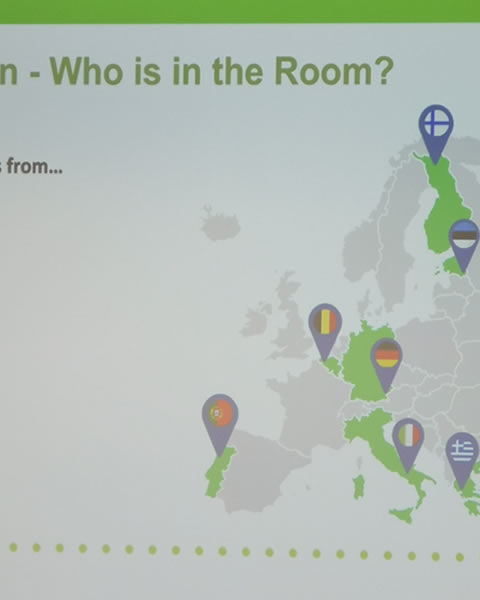
Victor Dimoulis proposed and undertook to carry out all the necessary preliminary actions up to and including the inclusion of the Municipality of Central Corfu and Diapontia Islands in the "Network of Historic Cities Against Plastic Waste" - ("Network of Historic Cities Against Plastic Waste") - ( HISCAP), which is an important part of the Horizon 2020 project entitled "BIO-PLASTICS EUROPE" and which was the reason for the successful presence of the Municipality of Central Corfu and Diapontia Islands, after a direct invitation, in the evaluation of the 1st manual created pan-European for the utilization and management of bioplastics and biodegradable plastics.
See here and here
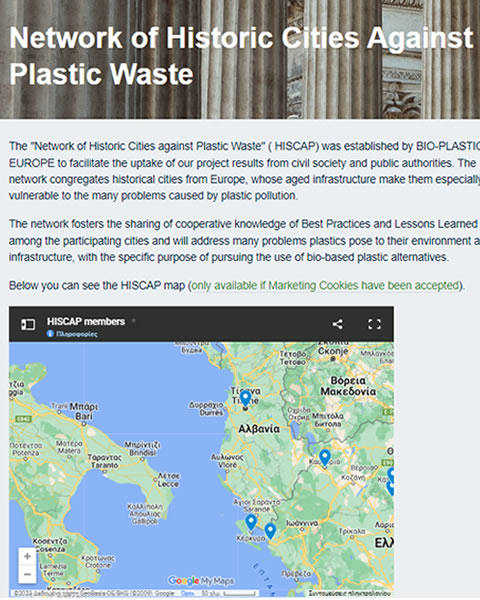
EUROPEAN MOBILITY WEEK
